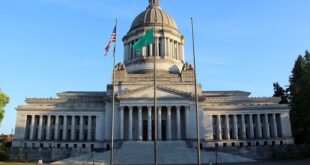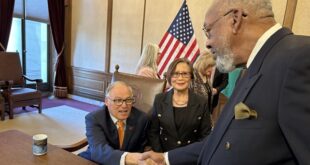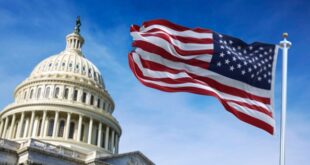Governor’s Budget Includes PEBB Subsidy Increase and Pension Fix, But No Plan 1 COLA
On December 13, 2023, Governor Jay Inslee released his 2024 supplemental budget proposal. The budget, which the Governor is required to create each December, is essentially a funding request to the Washington State Legislature. It includes funding for two of RPEC’s key priorities, but declines to fund a one-time cost of living adjustment (COLA) for PERS 1 and TRS 1 retirees in 2024.
What Is Funded?
Increase to PEBB Medicare Explicit Subsidy Cap: The Governor’s budget includes increased support for Medicare-eligible retirees who get health insurance through the Public Employees Benefits Board (PEBB). Currently, the State pays 50% of PEBB premiums for Medicare-eligible retirees, not to exceed $183 dollars per month. The $183 cap was first put in place in 2009 and was reduced by the Legislature to $150 to balance the budget during the 2011 budget crisis. Since 2011, RPEC has helped pass two pieces of legislation to increase the subsidy cap back up to $183. Currently, three PEBB Medicare plans are impacted by the $183 cap: Uniform Medical Plan Classic Medicare, Kaiser NW Senior Advantage, and Premera Medicare Supplement Plan F Disabled. However, additional plans are close to the cap and may soon exceed it if it is not raised.
Governor Inslee’s budget proposal calls for the subsidy cap to increase to $193 per month in 2025. This would amount to savings of up to $10 per month for retirees who are enrolled in PEBB plans impacted by the cap. RPEC is currently working with Legislators to increase the cap by more than the $10 per month amount budgeted by the Governor. Keeping PEBB plans affordable will be a key focus for RPEC during the 2024 Legislative Session. This line item in the budget is a direct result of RPEC’s advocacy efforts with the Office of Financial Management.
End to “Month-of-Death” Pension Prorating: The Governor’s budget includes funding to end pension clawbacks by the Department of Retirement Systems (DRS) when a retired public employee or beneficiary passes away. Currently, DRS prorates final pension payments, which are made on the last business day of the month. For example, if a retiree dies on the 7th day of a 30 day month, their final pension payment will be 7/30ths of the usual amount. This can cause issues in two instances.
When a retiree passes away near the end of the month, DRS often does not immediately find out. When they find out later, they are required to claw back any overpaid funds. This can cause headaches for family members and friends tasked with settling the affairs of their deceased loved one.
There is potential for a far worse issue to occur when a retiree passes away at the beginning of the month. Many retirees who receive medical insurance through PEBB choose to have their monthly medical premiums automatically deducted from their pensions. If a retiree passes away near the beginning of the month, their prorated pension amount may not be enough to cover their PEBB premium. In these instances, the retiree’s medical insurance can lapse in their final month of life due to unpaid premiums. This can leave family members burdened with astronomical end-of-life medical expenses without the assistance of insurance.
Inslee’s budget funds a proposal that was recently endorsed by the Select Committee on Pension Policy (SCPP) to end the practice of prorating final pension payments. The SCPP’s proposal would allow deceased retirees’ estates to receive a full final pension payment, regardless of the day of the month of death. This would end pension clawbacks and lapsing PEBB health insurance coverage due to unpaid premiums.
What Isn’t Funded?
PERS 1 and TRS 1 COLA: The Governor’s budget does not include funding for a one-time COLA for PERS 1 retirees in 2024. On November 14, the Select Committee on Pension Policy unanimously endorsed a proposal to provide a one-time 3% COLA to PERS 1 and TRS 1 retirees not to exceed $125 per month. The COLA proposal endorsed by the SCPP would provide much needed relief from inflation to PERS 1 and TRS 1 retirees, members of the only pension plans managed by DRS that do not receive automatic annual COLAs. Retirees in these plans have lost much of their purchasing since the Legislature took away their automatic annual COLA in 2011.
RPEC played a key role in passing one-time COLA bills in 2018, 2020, 2022, and 2023. The 2023 bill also requires the SCPP to study and recommend a proposal to restore an ongoing COLA to the Legislature. The SCPP’s recommended proposal is due by the end of 2024, meaning it could be acted on by the Legislature in 2025.
Governor Inslee allocated resources in previous budget proposals to fund COLAs in 2018, 2020, 2022, and 2023. In April 2020, while faced with what appeared to be an impeding state budget crisis due to COVID 19, he chose to veto almost all new expenditures that the Legislature had approved before business-as-usual was halted by the pandemic. Funding for a PERS 1 and TRS 1 COLA in 2020 was one of the few new expenditures that he approved.
Next Steps
Because the state operates on a two-year budget cycle, in 2024 Legislature will be making minor changes to the two-year budget they passed earlier this year. The Governor’s budget is a starting point for that process. Ultimately, the final version of the 2024 supplemental budget that the legislature enacts will have many differences from the Governor’s budget request. While inclusion in the Governor’s budget provides a distinct advantage, it is not a necessary requirement for a priority’s success.
To secure funding for a PERS 1 and TRS 1 COLA, an increase to the cap on the PEBB Medicare Explicit Subsidy, and an end to month-of-death pension prorating, retirees across the state will need to come together to make their voices heard. Please stay tuned for opportunities to share your stories. The single most important thing you can do to help is register to attend RPEC’s Legislative Day on January 22 in Olympia. The registration deadline is January 3. You will receive training on our priority issues and then meet with your legislators to discuss them.
 Retired Public Employees Council of WA Working to protect and enhance the pension and health care benefits of Washington retired state, county and local government employees
Retired Public Employees Council of WA Working to protect and enhance the pension and health care benefits of Washington retired state, county and local government employees



